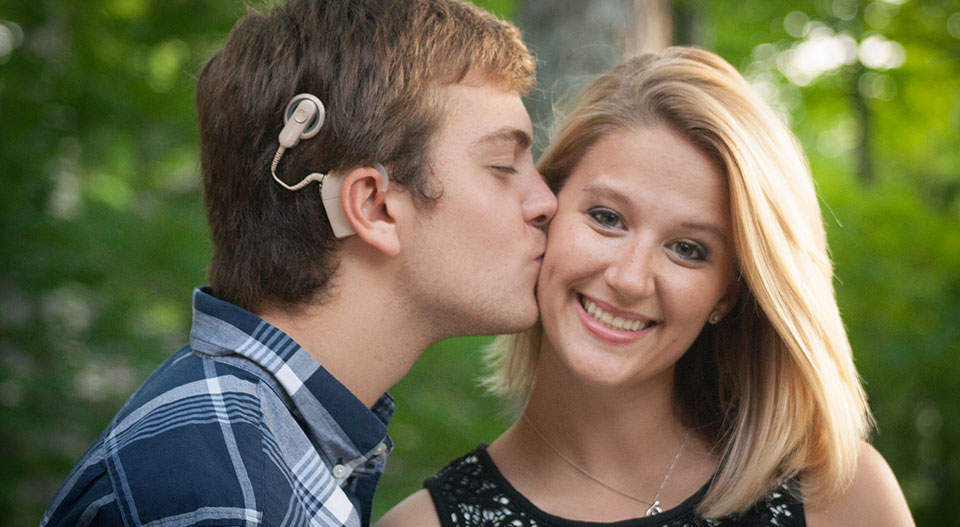

By Ashley Remington ’15
“I didn’t always know what an audiologist was, but I always knew I wanted to be one,” said Lucy Woerfel ’17. When she was in the fifth grade, her two-year-old cousin Billy was diagnosed as being severely hearing impaired, igniting a passion that would determine her education and future career.
“It was so difficult for Billy and his family,” said Woerfel about Billy’s diagnosis. “Everybody thought he might have had autism or attention deficit disorder, or that he was a little socially different. Come to find after two years of wondering, we found out he just can’t hear anyone! He’s totally normal!”
Woerfel was always extremely fascinated to understand the way Billy experienced life having a hearing impairment, and when she was in high school Billy’s mom mentioned that she should meet his audiologist. Agreeing, Woerfel went to his next appointment and loved every aspect of what she saw. By her senior year in high school she was certain that this was what she wanted to dedicate her future to.
With a dream to become an audiologist and help people like Billy, she enrolled in the UW-Stevens Point School of Communicative Disorders, particularly after hearing about the Clinical Doctorate in Audiology (Au.D.) program that was offered. Completing the undergraduate program four years later, she applied to graduate schools to pursue Au.D., with hopes of continuing her education at UW-Stevens Point.
“I decided that if I got accepted into the doctorate program at UW-Stevens Point, I was staying,” she explained. “This is where I wanted to be. The clinical program here is superior. If you want clinic skills in audiology, this is the place to be.”
Last year, Billy received his first cochlear implant, after succeeding with hearing aids for 15 years. A cochlear implant is an electronic device that enables one with profound hearing loss to have a sense of sound. Whereas hearing aids only amplify sounds, a cochlear implant converts sound waves to electrical impulses so that a hearing impaired person can hear sounds and better understand speech.
Not only did Billy’s diagnosis inspire Woerfel to become an audiologist, but it opened up educational opportunities for her as well. As a first-year graduate student she did two cochlear implant-related independent studies based on Billy’s experiences, attending his appointments, his cochlear implant surgery, and his follow up appointments, as well as witnessing him hear for the first time after the surgery.
Billy, now 18-years-old, plays football, lacrosse, and is attending school at Michigan State next year. He was able to live a normal life through the help of audiologists. “The diagnosis was devastating; words that no parent wants to hear, and an impairment that no child should have to bear. And yet, in an undesired situation, hearing aids provided an opportunity for normalcy,” said Woefel. “Every time I leave the clinic, I always feel like I have the best job in the world. It was through Billy that my passion was ignited and I realized the reward of restoring a person’s hearing with amplification.”
Woerfel hopes to someday work with the pediatric population so that she will get to help others the same way so many have helped Billy. “I am smart enough to know the world is far from a perfect place, but I also know that hearing aids have given my cousin the chance to be like everyone else.”
